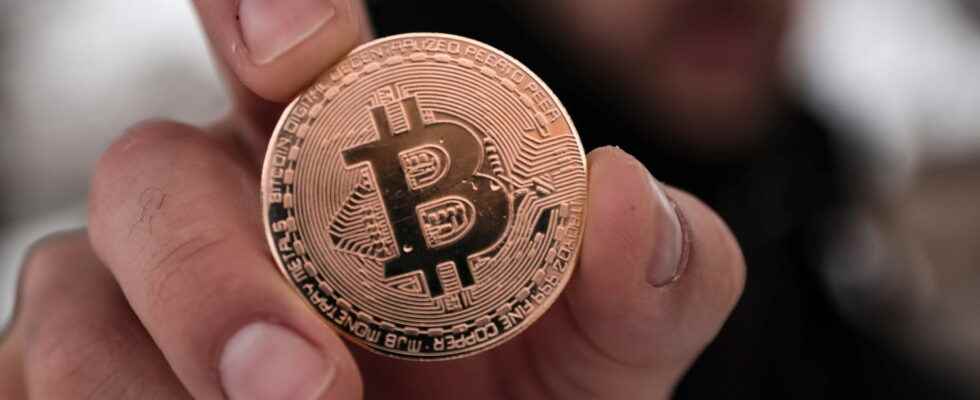The Government would like to invest public money in NFTs in order to promote their development in France. An announcement that raises questions and comes at the wrong time, when the sector is collapsing.
In the digital world, NFTs generate a lot of debate. New digital eldorado for some, spectacular gogo-catcher for others, opinions differ. As a reminder, NFT is the acronym for Non-Fungible Token – or “non-fungible token” in French. It is a kind of certificate of authenticity based mainly on the Ethereum blockchain – an exchange protocol that uses a technology for storing and transmitting data in the form of blocks linked to each other, without any central body. or intermediary, which makes it possible to gain in transparency, security and speed – and which assigns a monetary value to a good – physical or digital. NFTs associated with a physical good or a digital work are deemed to be non-fungible, that is to say non-interchangeable, secure, tamper-proof and easily transferable to a third party. Their value – and by extension that of the property with which they are associated – is quite fluctuating and volatile (see our practical sheet). Some NFTs have been traded for astronomical sums, ranging up to tens of millions of dollars. But luck can quickly turn.
The Government obviously has faith in this technology, as evidenced by recent statements by Jean-Noël Barrot, Minister Delegate for the Digital Transition. On October 18, 2022, during the opening of the NFT Factory – a 400 m² space aimed at introducing the general public to NFTs and developing the French ecosystem of non-fungible tokens by supporting start-ups embarking on the domain – the Minister thus declared that France had “all the assets to become a European and global NFT platform”. “We must accompany this movement with the support of public money, within the framework of France 2030”, he added. An announcement with very bad timing…
NFT and public funds: supporting the French market through taxes
As reported BFMJean-Noël Barrot announced the State’s desire to finance the sector with public funds: “With global players in culture, video games and the luxury industry, France has everything it needs to become a European and global platform for NFTs. We need to accompany this movement with the support of the ‘public money’. While he has not indicated the exact amount of this funding, it would be provided under France 2030an investment plan of 30 billion euros deployed over 5 years which should facilitate the emergence “future technological champions of tomorrow”. However, it considers it absolutely necessary to put in place “a regulatory framework for NFTs, as yet unidentified objects, particularly in terms of legal certainty”. In fact, NFTs are currently totally exempt from French legislation. On the side of the European legislation MiCA – Market in crypto assets –, NFTs are framed only if they are linked to a material work. Also, all digital creations – and there are many of them – are in a legal vacuum.
In an interview with the specialized media The Big Whalepublished on October 19, Jean-Noël Barrot gave a little more detail, announcing that he had entered, with Bruno Le Maire and Gabriel Attal – respectively Minister of the Economy and Minister of Action and Public Accounts –, the General Inspectorate of Finance “a global mission on NFTs. In particular, it will draw up an overview of uses and could suggest ways of changing regulations in order to allow the development of players in the sector”, he explains. He refuses to be “in the camp of fear” that this new object can arouse, but rather in that of ambition, in order to “mastering the technological bricks of web 3 so as not to be dependent on foreign powers, because technological domination precedes economic and cultural domination.”
NFT and public funds: an investment that comes at the wrong time
The least we can say is that the announcement of Jean-Noël Barrot comes at the worst time. Indeed, the NFT sector is currently in the red – although brands and companies continue to show interest – following the cryptocurrency crash. Even the most famous collections, like the Bored Ape Yacht Club from Yuga Labs, have lost their value considerably. This is explained by the fact that in 2022, the exchanges of tokens on the blockchain have been greatly reduced. According to analysts at StockApps, NFT sales fell by 41% between the last half of 2021 and the second quarter of 2022. Inflation and the resulting economic crisis are not unrelated to this and are forcing investors to turn away from too risky assets, such as cryptocurrencies and NFTs, which do not represent anything concrete. The NFT of the first tweet, which originally sold for $2.8 million, only found takers in April 2022. for the sum of 280 dollars…
In any case, this is not what will obviously worry the Minister Delegate for the Digital Transition and his advisers. To remain positive, note that despite the collapse of the speculative market, projects are multiplying. eBay, the leader in online auctions, opened its own non-fungible token marketplace in the spring of 2022. Coca-Cola and Nike also launched their own collection of NFTs. And what about Facebook, which justopen its social network of over 2.9 billion users worldwide to non-fungible tokens, in parallel with the Apple App Store! It is therefore in a daring and risky bet that the French government is embarking…
